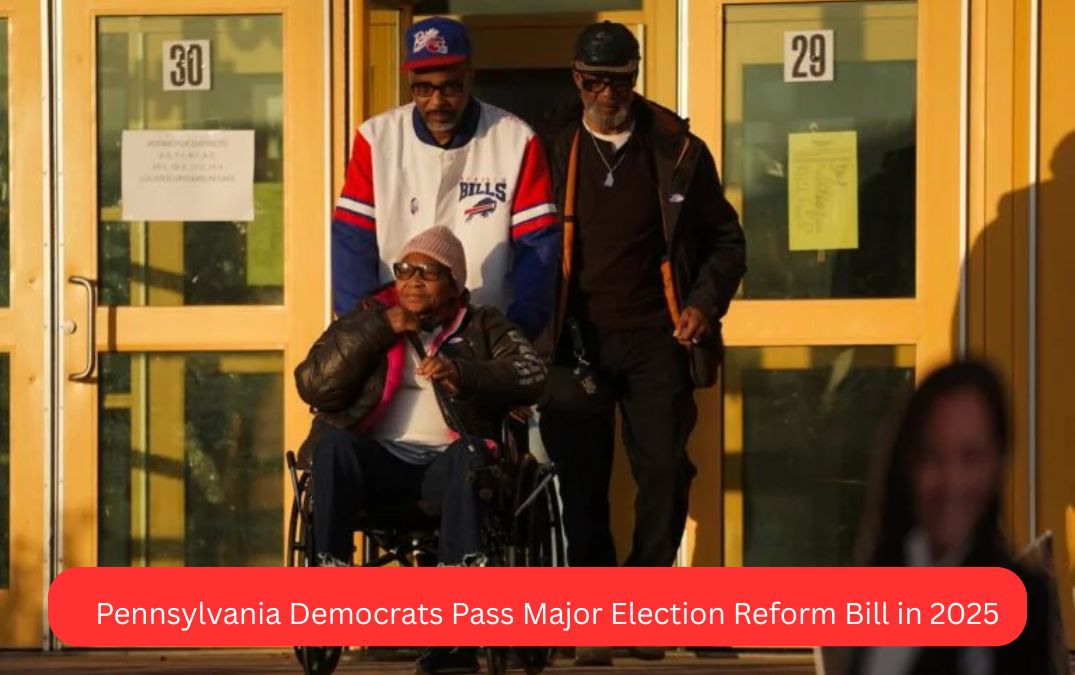Pennsylvania’s House of Representatives recently approved a comprehensive election reform bill aimed at expanding voter access and modernizing election procedures.
The bill introduces in-person early voting, extends mail ballot processing time, and mandates mail ballot drop boxes statewide. However, the contentious voter ID requirement was excluded, reflecting ongoing partisan disagreements.
What Happened
On May 13, 2025, the Pennsylvania House narrowly passed a sweeping election overhaul bill by a 102-101 vote, with all Democrats supporting and Republicans opposing. The legislation, sponsored by House Speaker Joanna McClinton (D., Philadelphia), seeks to improve voting access and address delays in ballot processing experienced since no-excuse mail voting began in 2020.
Notably, the bill does not include a voter ID requirement, a provision Republicans have long insisted is essential for election reform.
Key Details
- In-person early voting will be established for the first time in Pennsylvania. Counties must provide at least one early voting site, with additional locations for every 100,000 voters. Early voting starts 11 days before Election Day and ends the Sunday before.
- Mail ballot pre-processing can begin up to seven days before Election Day, allowing counties to open envelopes and prepare ballots for counting earlier than currently allowed.
- The bill removes the requirement for voters to hand-write the date on mail ballot envelopes and prohibits rejection of ballots lacking an inner secrecy envelope.
- Voters who forget to sign their mail ballot envelope will be notified within 24 hours and given up to six days after the election to fix the issue.
- Each county must provide a minimum of two mail ballot drop boxes, standardizing a practice that was previously optional.
- By 2027, all precincts must use electronic poll books to speed voter check-in and post-voting procedures, supported by a $60 million bond and $2 million state funding.
Reactions and Statements
House Minority Leader Jesse Topper (R., Bedford) acknowledged ongoing Republican concerns with the voter ID proposal, which was pulled from the House voting calendar due to insufficient support.
Rep. Tom Mehaffie (R., Dauphin), co-sponsor of a separate voter ID bill, expressed confidence his measure aligns with constitutional standards and hopes it passes in the next session.
Senate Republicans remain firm that any voter ID rule must come through a constitutional amendment, not ordinary legislation, signaling likely resistance in the Senate.
Local election officials praised the bill’s improvements but flagged internal contradictions, such as prohibiting pre-election tabulation of mail ballots while allowing early voting counts. They also noted logistical challenges for smaller counties required to have early voting locations in county seats with limited space.
Investigation or What’s Next
The bill now moves to the Republican-controlled Senate, where its prospects are uncertain due to the voter ID dispute and other concerns.
Election officials continue to monitor developments and hope lawmakers will seek their input to address practical challenges before finalizing election law changes.
FAQs
Q: Does the bill require voters to show ID at the polls?
A: No. The current bill excludes voter ID requirements, though separate legislation is under consideration.
Q: When can counties start processing mail ballots?
A: Up to seven days before Election Day, an earlier start than current law permits.
Q: Will there be early voting locations everywhere?
A: Yes. Each county must have at least one early voting site, with additional sites based on voter population.
Q: What happens if a voter forgets to sign their mail ballot envelope?
A: Voters will be notified within 24 hours and given up to six days post-election to fix the issue.
Q: How will electronic poll books improve voting?
A: They speed up check-in and reduce errors, with full implementation required by 2027.
Summary / Final Takeaway
Pennsylvania’s 2025 election reform bill represents a significant shift toward expanded voter access and modernization. While it faces hurdles—most notably the absence of a voter ID mandate and concerns about implementation details—it marks a critical step in addressing long-standing voting process inefficiencies.
The bill’s fate in the Senate and the resolution of internal contradictions will shape Pennsylvania’s election landscape moving forward.












